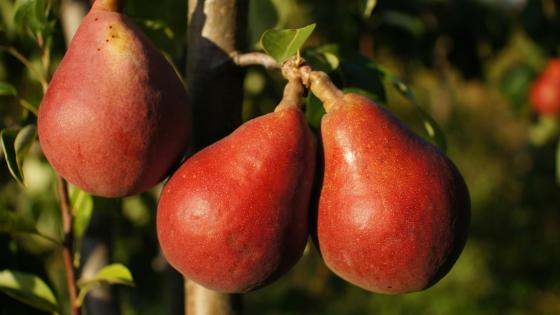
Pears
Pears
Very few European pears (Pyrus communis) are grown commercially in Kentucky, primarily due to problems with fire blight and late spring frosts. Asian pears (P. pyrifolia, synonym P. serotina), on the other hand, are more consistently productive in Kentucky in spite of these problems. Also called apple pears, Asian pears are crisp and juicy like an apple, but with the sweetness associated with pears.
Key Requirements
| Land | Medium |
| Labor | Medium to High |
| Capital | Medium |
Take the HortBizQuiz to see how much Land, Labor, and Capital you have for your operation.
Markets
- Direct to Consumer
- Farmer's Market
- On-Farm Stands
Pests & Disease
The most prevalent and devastating disease of pears is fire blight. Insect pests include pear psylla, codling moth, mites, stink bugs and aphids. Stink bugs create a hard spot in the fruit where feeding occurs, this happens mostly with Asian pears.
Costs and returns are presented as estimates. They will vary based on your farm and markets.
Costs and returns are presented as estimates. They will vary based on your farm and markets.
Challenges
- Only specific cultivars of pears should be grown in Kentucky.
- Asian pears bruise easily and must be handled carefully.
- Can take years before the tree is at fruit bearing age.
Opportunities
- European pears, depending on the cultivar, can be stored from two to four months at the proper temperature and relative humidity.
- The niche market for Asian pears in Kentucky grows steadily.